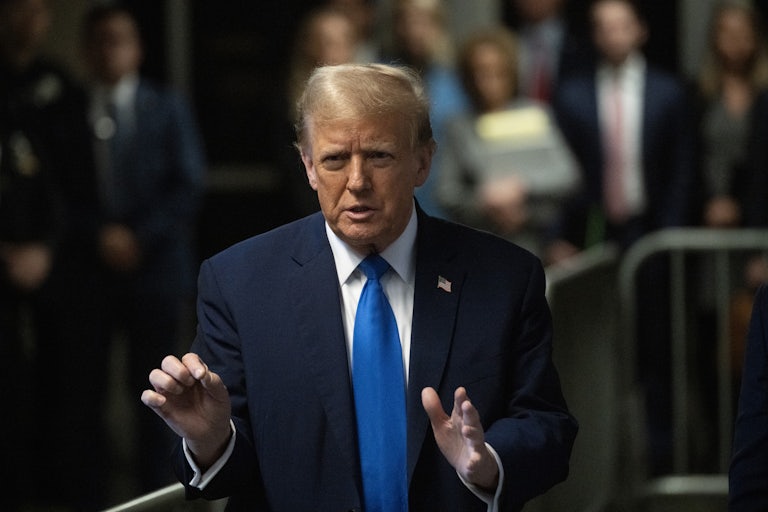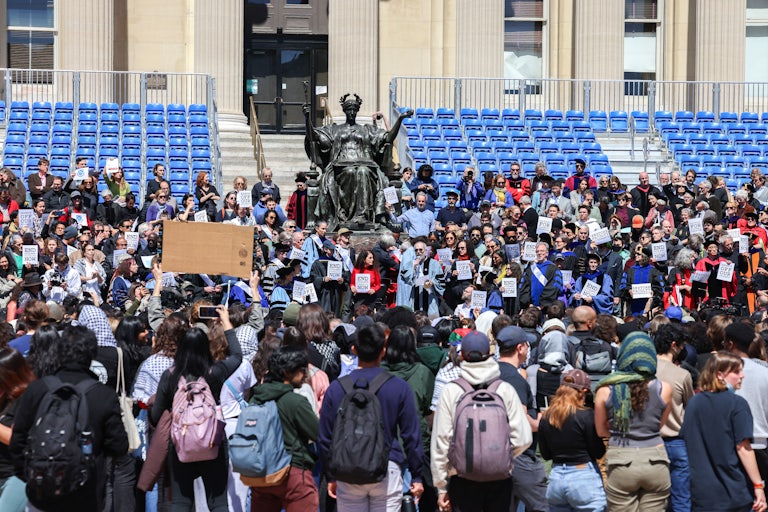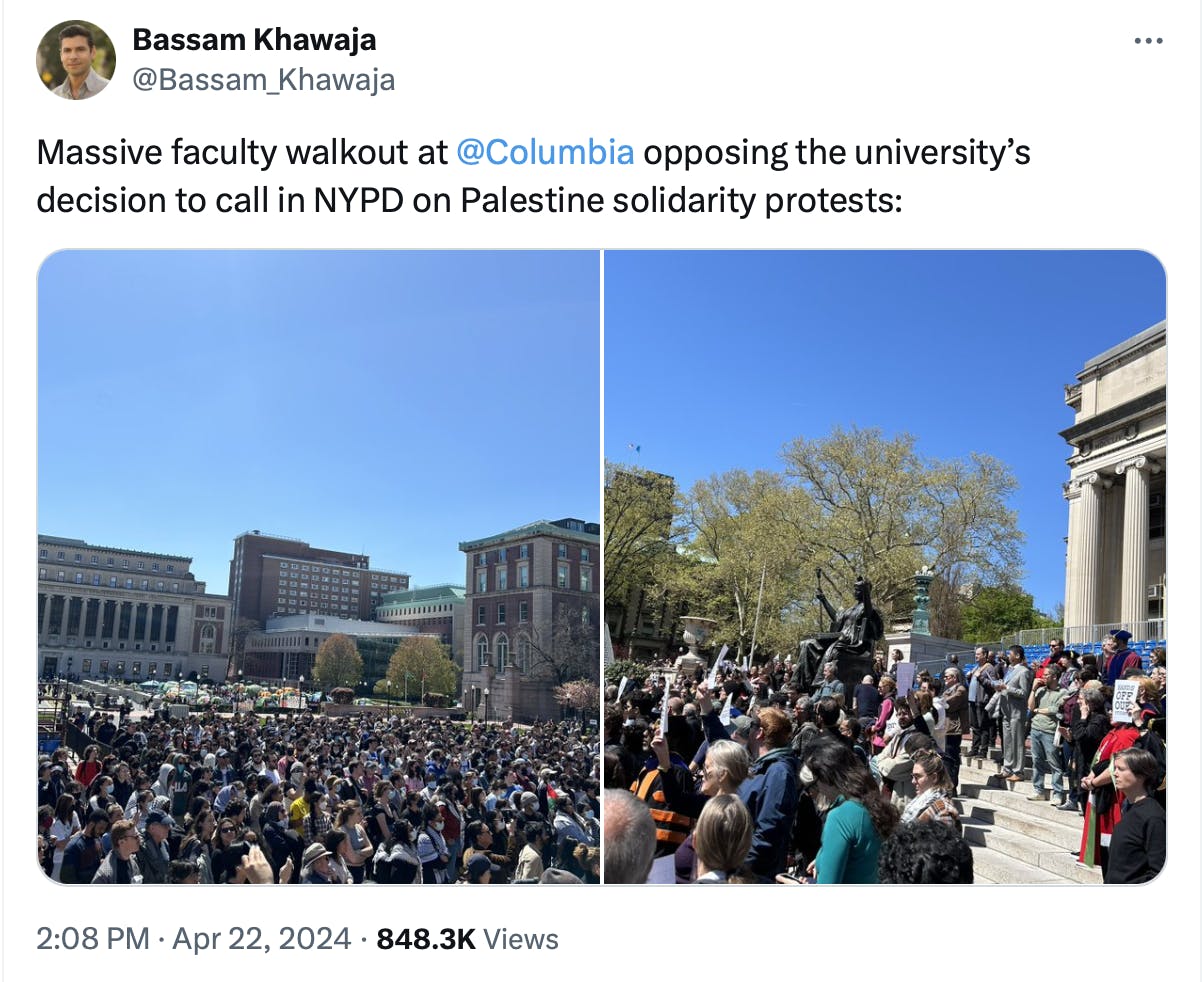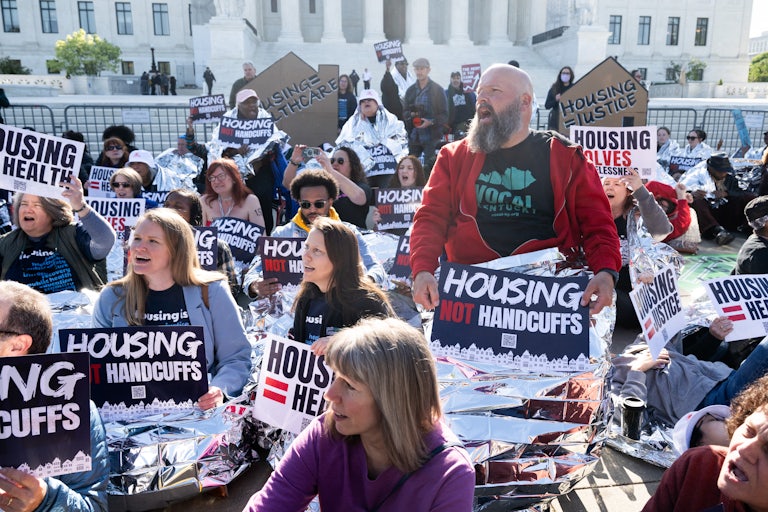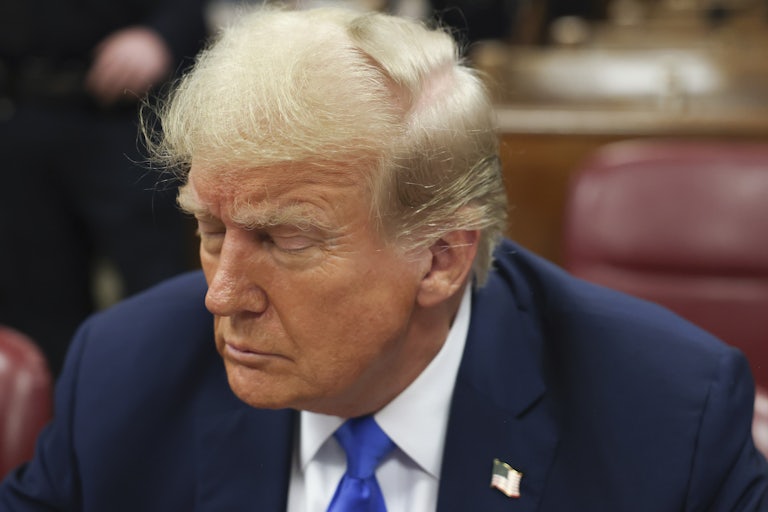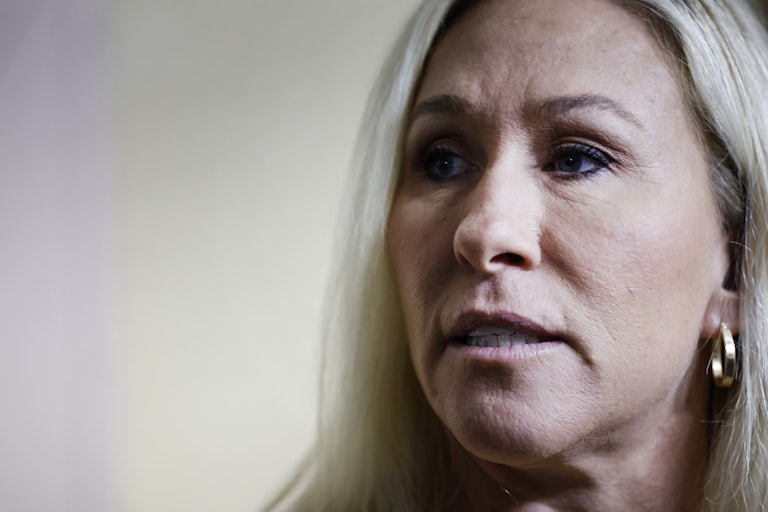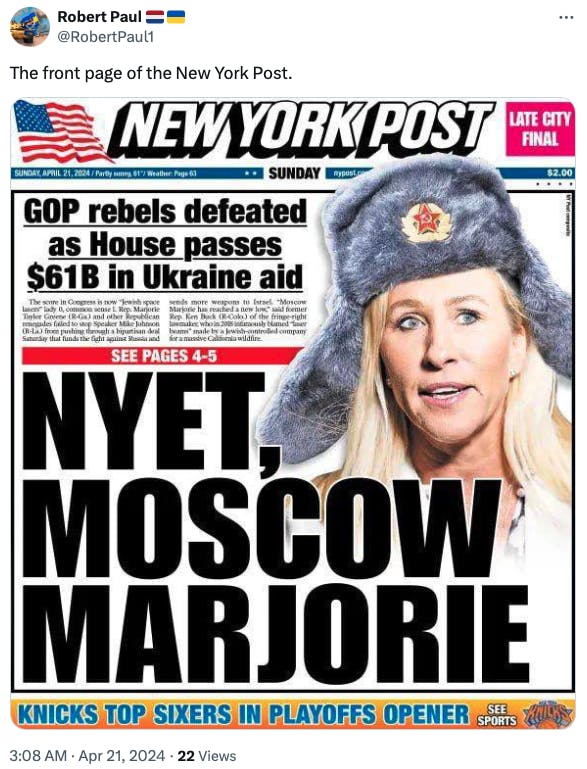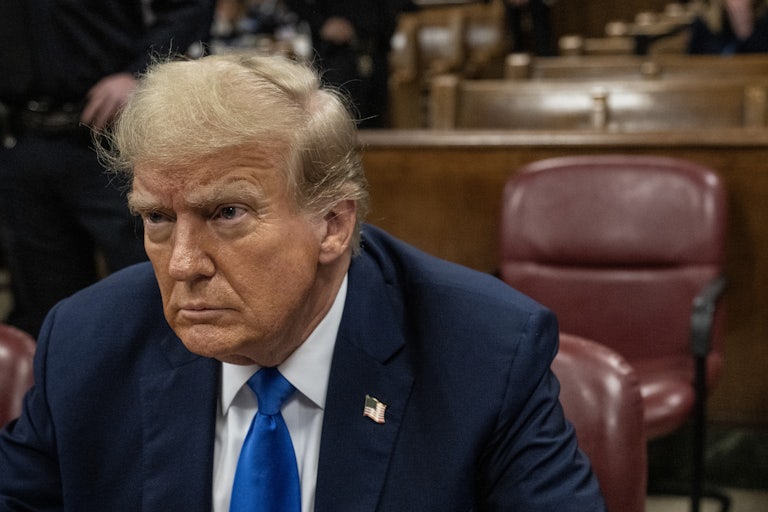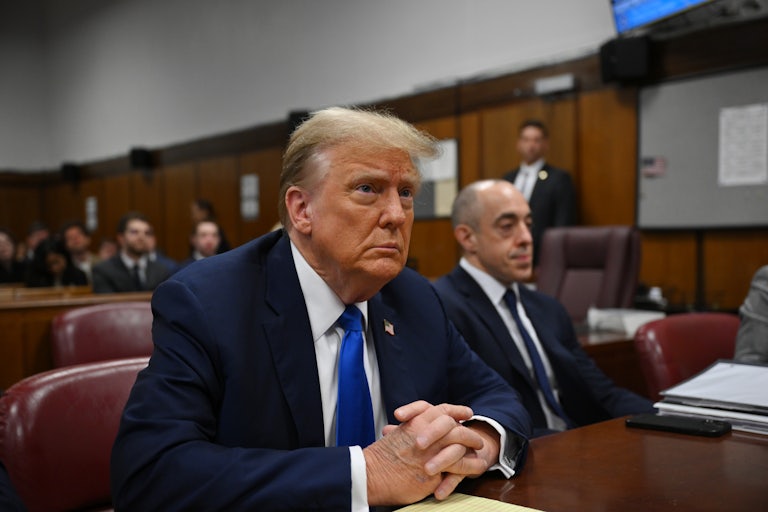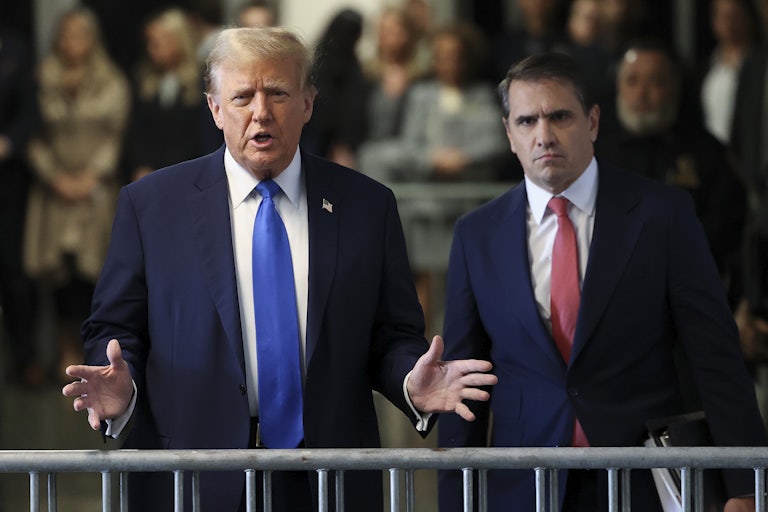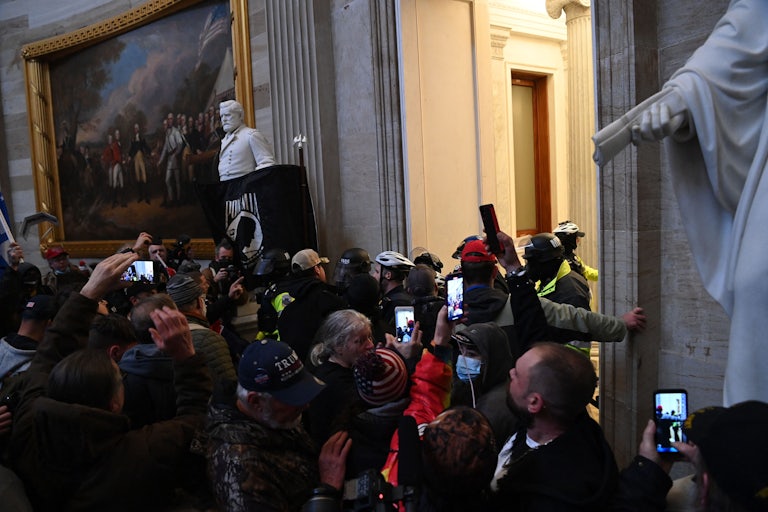Alina Habba Shows Up at Trump’s Trial and Suddenly Makes Things Worse
Habba decided she would help her boss by appearing to admit he was guilty.
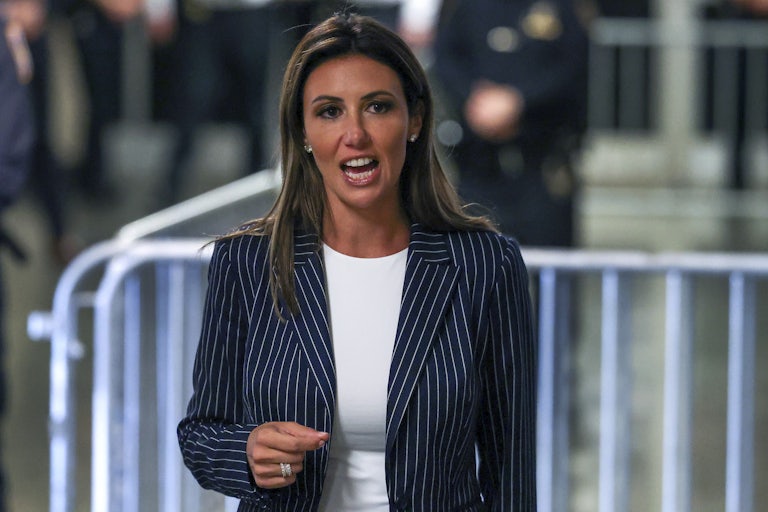
Donald Trump’s attorney Alina Habba should be more careful speaking.
Habba, who is not representing Trump in his hush-money trial, still showed up at the Manhattan courthouse on Monday to offer her opinion. “We’re here because of something that happened when he was in the White House that wasn’t even wrong,” she told reporters.
“You hire lawyers to solve problems, lawyers solve those problems, you pay them. That’s it!” Habba said, in language reminiscent of Trump’s rally speeches.
Alina Habba dismisses Trump's hush payment to a porn star: "You hire lawyers to solve problems, lawyers solve those problems. That's it." pic.twitter.com/bOiYHEjf59
— Aaron Rupar (@atrupar) April 22, 2024
Whether they solved problems or not, Trump’s payments in 2016 to his lawyer and fixer at the time, Michael Cohen, allegedly were made to ensure that adult film actress Stormy Daniels kept quiet about her affair with the then-presidential candidate. Trump now faces 34 felony charges for allegedly falsifying business records with the intent to further an underlying crime.
Habba’s vehement defense of Trump may impress him, but they don’t deny a crime, nor the facts of the case. In fact, it almost sounds like she’s admitting he paid Cohen to keep Daniels quiet.
Habba often goes to crazy lengths to defend the former president, whether it’s claiming that he dozed off in court because “he reads a lot” or comparing him to Nelson Mandela. She even, in trying to defend Trump in a safe audience on Fox News, almost admitted that he could be bought by foreign countries to pay off his debts.
Habba’s words on Monday are not the first time she has seemingly displayed ignorance of the law, either. She has claimed the New York state law requirement that Trump attend every day of his trial is a violation of “due process,” and she was rebuked in court 12 times in one day in the E. Jean Carroll defamation case. She even had to abandon her attempt to have the Carroll case dismissed.
